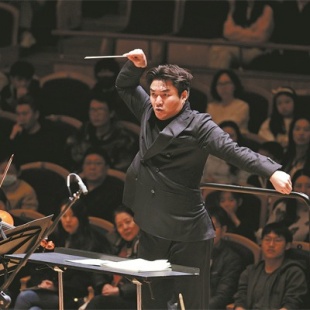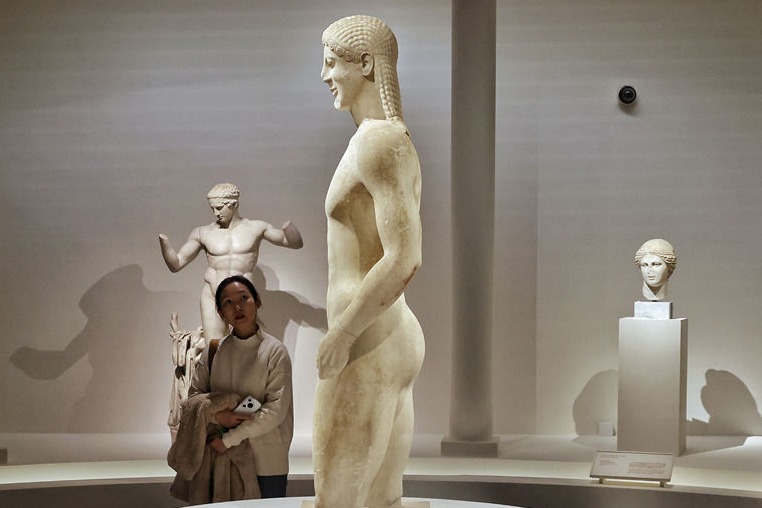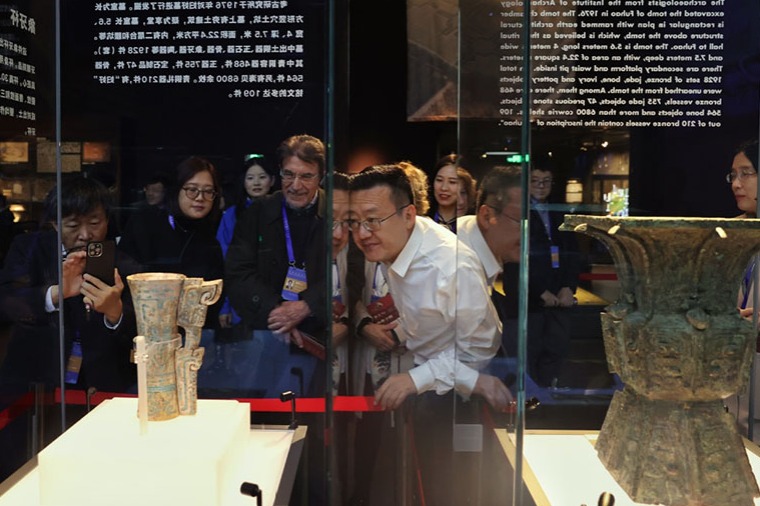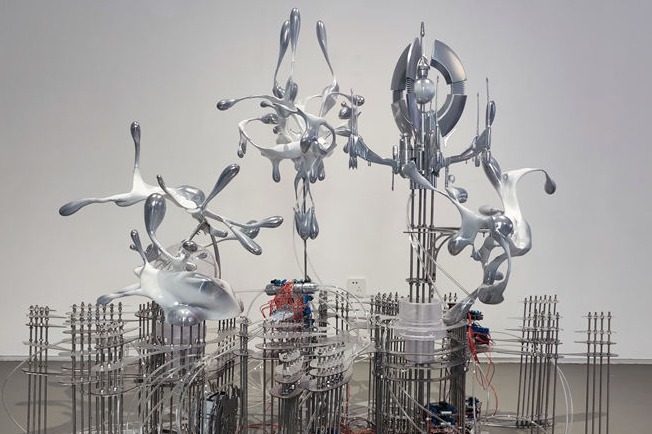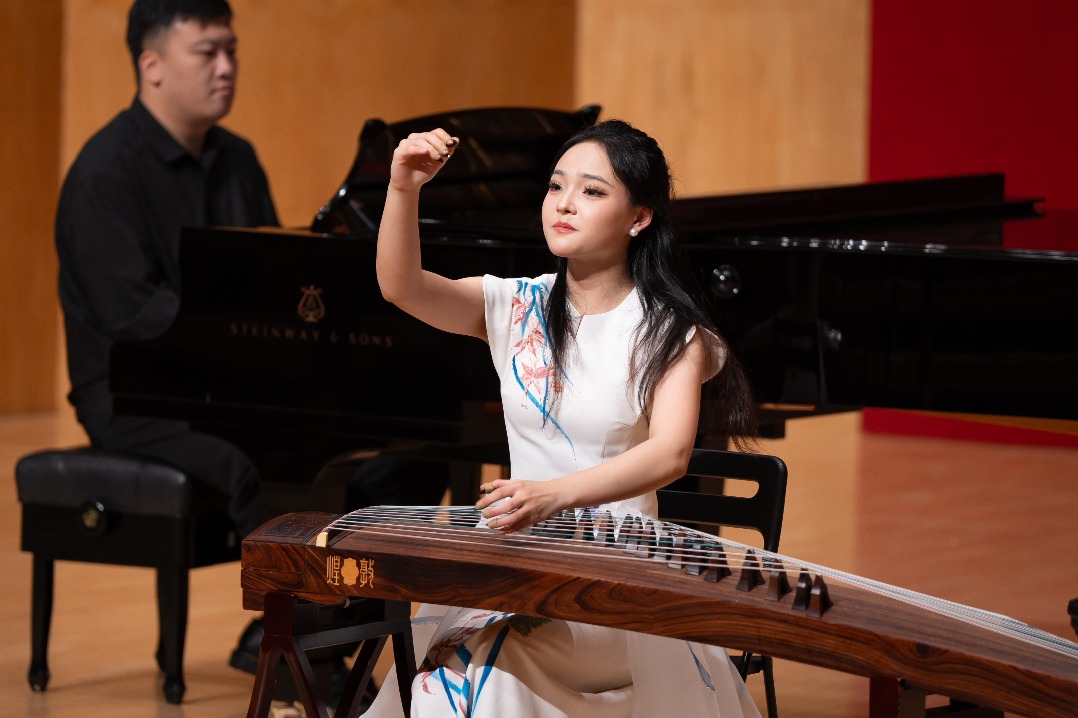Orchestrating a prestigious career
Inspired by master composers, musician strings together his dream of becoming a conductor, Chen Nan reports.

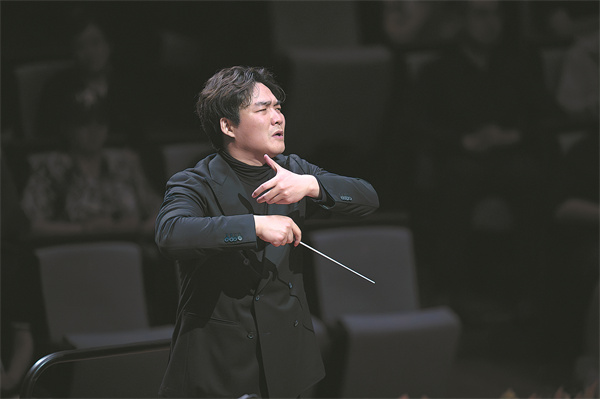
However, Qian always dreamed about becoming a conductor. In 1999, the 9-year-old Qian watched the New Year Concert performed by the Wiener Philharmoniker under the baton of conductor Lorin Maazel on TV. He was intrigued by the performance of the French-born American, who also played the violin during the concert.
"The experience of listening to a symphony orchestra cannot be obtained through listening to any singular instrument. Only the conductor can lead, inspire and request the symphony orchestra to ultimately make the sounds it makes. The conductor communicates with his or her hands and eyes, evoking, molding and shaping the sound of the orchestra," Qian says.
In 2008, Qian was admitted to the Curtis Institute of Music to study viola. His idea of becoming a conductor was supported by Roberto Diaz, Qian's viola teacher, who also leads the Curtis Institute of Music.
"He allowed me to attend conducting courses and encouraged me to make good career decisions," Qian says.
After graduating from the Curtis Institute of Music, Qian studied conducting with maestros including Mark Gibson at the University of Cincinnati and Michael Ken Jinbo of the Pierre Monteux School and Music Festival in Maine.
Qian was also a private student of legendary German-American conductor Otto Werner Mueller. In 2014, after joining the Swedish Radio Symphony Orchestra as a violist, he was mentored by British conductor Daniel Harding, the music and artistic director of the Swedish Radio Symphony Orchestra.
In 2016, Qian entered the Hanns Eisler School of Music Berlin in Germany to study conducting, where he graduated in 2019.
"Those great conductors taught me to grow and develop my own style. For example, Mueller taught me how to prepare myself — from reading the music score to turning it into real music. Before rehearsals with the symphony orchestras, I have a clear idea about the music score by analyzing it and being aware of how to deal with it," Qian says. "Harding is a genius. He is also a pilot. Though I was a violist in the orchestra, I was inspired by him. He taught me to know what I want to express through music and how to communicate with the orchestra members.
"They taught me things beyond the music itself," he adds.
In 2015, Qian left his position at the Swedish Radio Symphony Orchestra and has been pursuing a full-time job as a conductor. He has won several international conducting competitions, including first prize at the 2017 Bucharest International Conducting Competition and third prize at the Princess Astrid Conducting Competition in Norway in 2022.
In the 2022-23 performing season, he made his debut with the London Philharmonic Orchestra and the Royal Philharmonic Orchestra in London. With the Minnesota Orchestra, he created the Lunar New Year project from scratch and has been invited to be in charge of this project for three consecutive years.
Early this year, he conducted the Shanghai Symphony Orchestra, featuring Grammy-nominated Chinese-American composer Zhou Tian's First Sight (Chinese premiere) and Brahms' Violin Concerto in D Major, Op 77, and Serenade No 2 in A Major, Op 16. During the encore session, he surprised audiences by playing viola along with Chinese-American violinist Nancy Zhou on the classic Chinese violin concerto, Butterfly Lovers, composed by He Zhanhao and Chen Gang.
"Live performances hold a special allure. As a conductor, I'm continually exploring new horizons by collaborating with orchestras both at home and abroad," Qian says.


